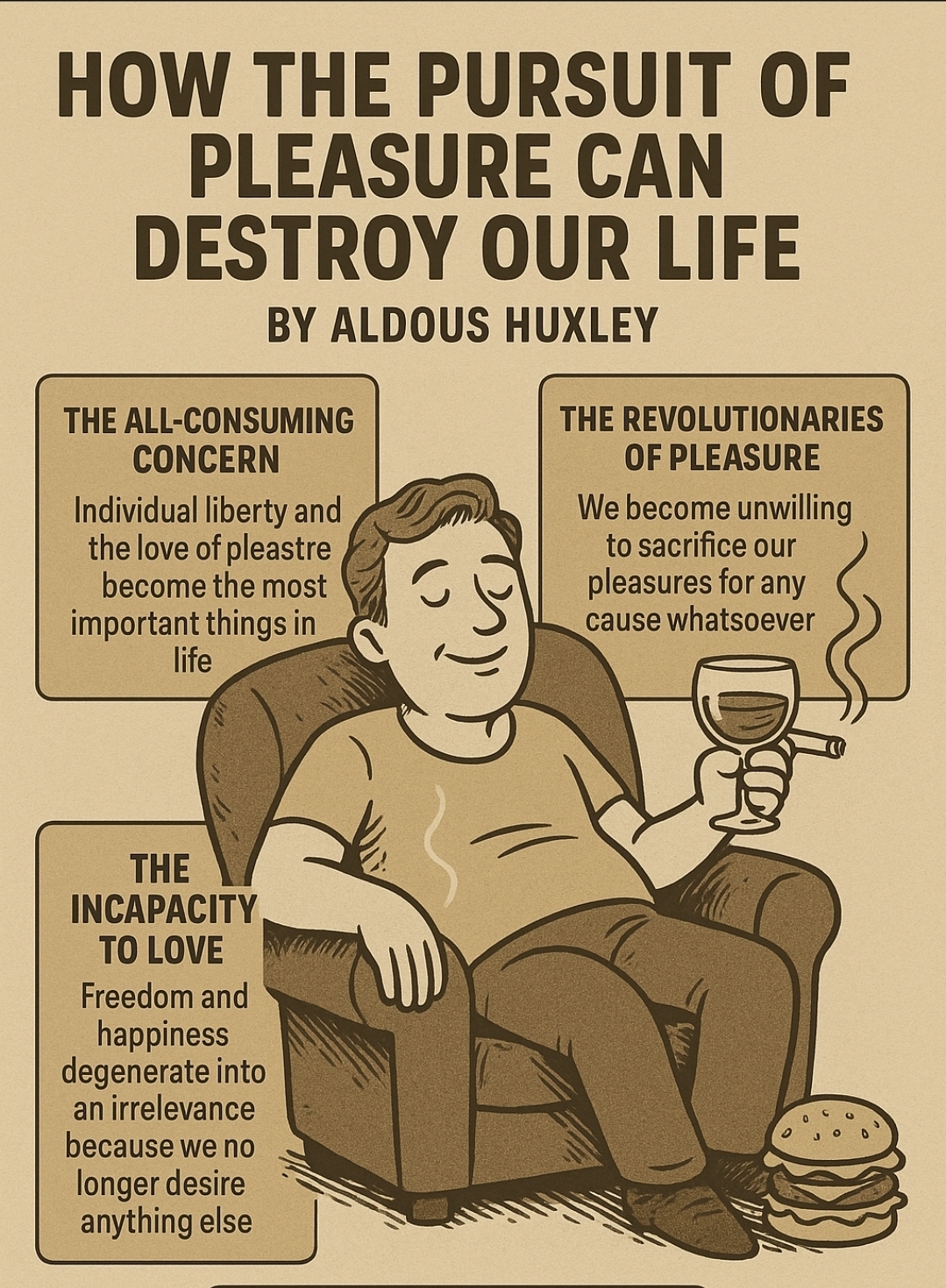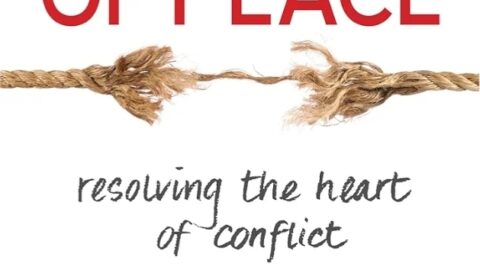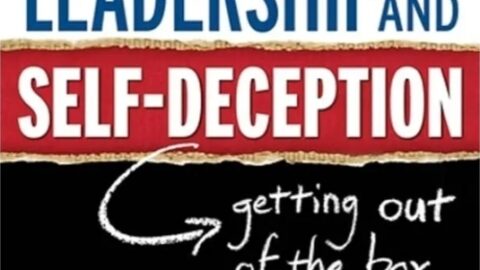Introduction: Chains Disguised as Freedom
Aldous Huxley once warned, “The men will forget how to think and will begin to seek distractions, not meaning.” His words echo in our world today. We believe ourselves free because no tyrant whips us into obedience. Yet the chains that bind us are subtler — woven from pleasure, distraction, and desire.
Think about the “little freedoms” of modern life:
- Every notification: The ping of a phone doesn’t ask politely — it commands attention. We rush to check it, even in the middle of conversations, work, or prayer. We call it “choice,” but the choice is scripted by engineers who studied how to hijack our attention.
- Every binge-worthy series: Streaming services design cliffhangers not as art but as psychological hooks, keeping us from closing the laptop. We say, “Just one more episode,” but the structure was built to ensure surrender.
- Every impulse purchase: That midnight Amazon buy or fast-food stop isn’t necessity; it’s manufactured desire, stoked by algorithms that “know” us better than we know ourselves.
None of these acts feel like slavery, because they come wrapped in convenience and pleasure. Yet each one trains us — like Pavlov’s dogs — to salivate at signals, to obey external cues, to confuse indulgence with freedom.
Søren Kierkegaard and Friedrich Nietzsche diagnosed the roots of this centuries ago: human beings, finite in body but infinite in longing, are prone to chase pleasures that never satisfy. Kierkegaard called it the “sickness unto death,” where desire always outruns reality, breeding despair. Nietzsche warned of the “last man” — content, comfortable, and mediocre, trading greatness for safety and entertainment.
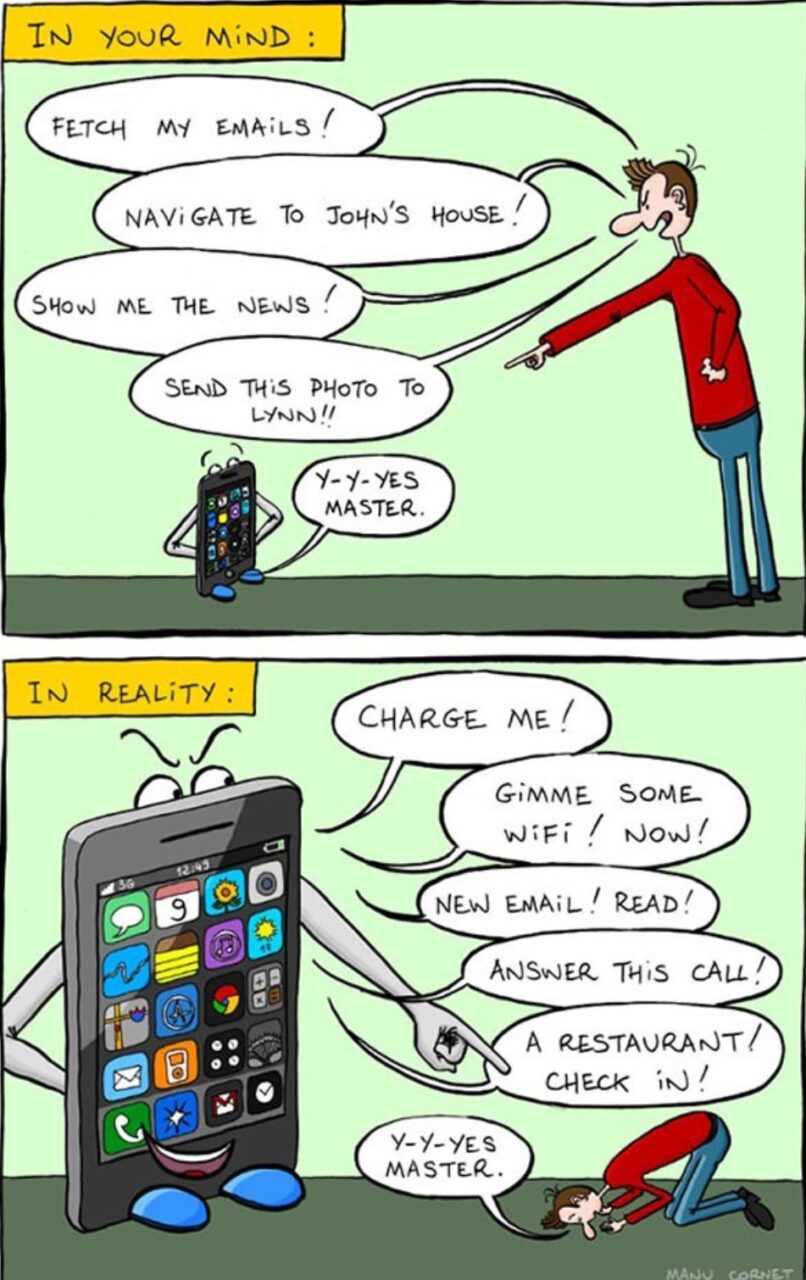
In our world, these warnings materialize daily:
- We scroll TikTok instead of wrestling with life’s big questions.
- We choose dopamine jolts over discipline.
- We surrender long-term freedom for momentary convenience.
And in doing so, we risk losing not only our attention but our very humanity — reduced to distracted consumers decorating their golden cages.
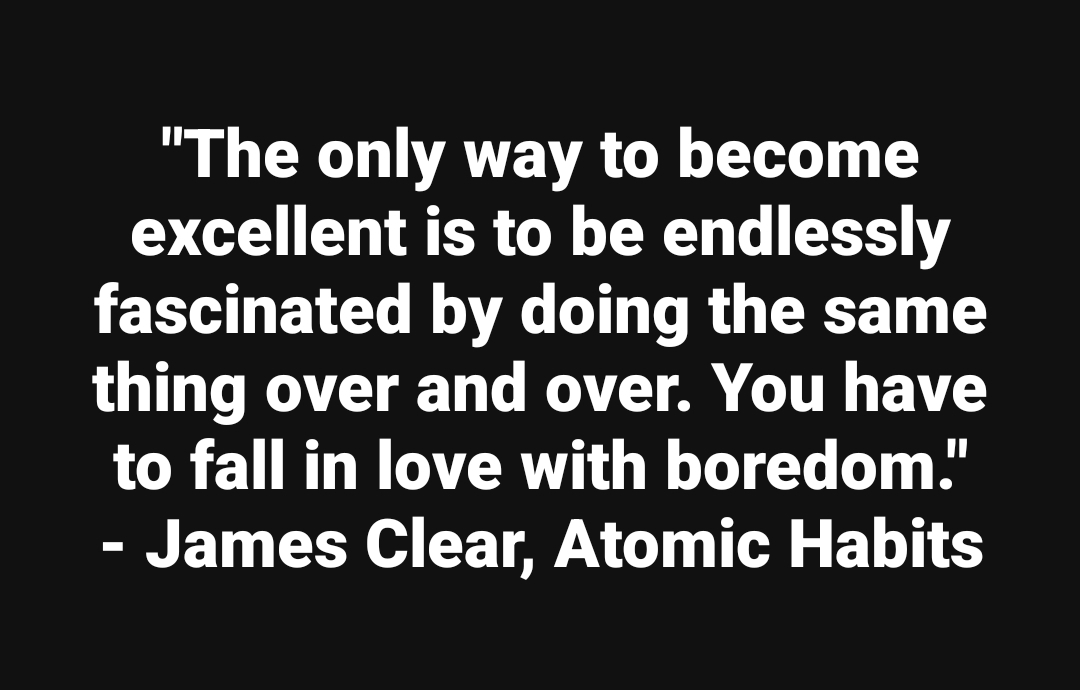
The False Freedom of Impulse
We celebrate our freedom by telling ourselves we can “do whatever we want.” But how many of our daily choices are truly our own?
- The urge to check notifications mid-conversation: You don’t plan to ignore your spouse, your child, or your colleague. Yet the vibration in your pocket overrides presence. You reach instinctively — not because the message matters, but because the behavior has been conditioned. Like a lab rat pressing a lever, you seek the unpredictable reward of a like, a text, or an update.
- The TV that switches on before you’ve decided: Smart devices default to auto-play, loud splash screens, and endless content loops. You may tell yourself, “I’ll just put something on for background noise,” but the design ensures hours pass before you realize you never actually chose how to spend them.
- The reflex to scroll when silence becomes unbearable: The awkward pause in the grocery line, the quiet moment before bed, the stillness of an early morning walk — all colonized by reflexive scrolling. What once could have been moments of reflection or creativity vanish in a haze of algorithmic noise.
These are not acts of autonomy — they are programmed reflexes. Freedom is not merely the ability to act; it is the ability to pause, to resist, to choose deliberately. And in this, most of us are losing ground.
George Orwell warned of control through fear — the boot stamping on a human face forever. Aldous Huxley foresaw something subtler: people who would not need to be forced, because they would happily choose their own chains. We are living his prophecy. We hand over data willingly for “personalization.” We binge distraction because it feels like freedom. We say yes to what enslaves us because the shackles are gilded with convenience.
This is the genius — and the danger — of the modern system. It doesn’t need to force us. It only needs to reward our impulses. And in mistaking reflex for freedom, we quietly decorate our cages, proud of how comfortable they feel.ll feared control through fear; Huxley feared control through pleasure. The world chose Huxley’s path.
Dopamine: The New Invisible Chain
Dopamine once kept us alive. When our ancestors found berries after a long winter, discovered fire, or secured the bond of love and tribe, dopamine reinforced survival. It was nature’s way of saying: Do that again. This keeps you alive.
But today, dopamine has been hijacked. The same system that once ensured our survival now fuels our enslavement:
- TikTok and Instagram mimic casino slot machines. Every swipe is like pulling a lever — sometimes you get a funny video, sometimes something boring, sometimes a shocking or emotionally triggering clip. This unpredictability is what makes slot machines addictive, and social media engineers know it. You don’t stop because your brain is chasing the next unpredictable hit of dopamine.
- Shopping apps blur the line between want and need. “One-click checkout” on Amazon, “Buy Now, Pay Later” on Klarna, or endless personalized ads ensure you buy not because you need, but because the act of clicking feels rewarding. You didn’t plan to buy socks, but the suggestion—framed as “a deal just for you”—hijacks the dopamine system designed for survival.
- Video games engineer compulsive progression systems. Daily log-in bonuses, leveling up, loot boxes, and endless side quests keep players hooked. The brain doesn’t distinguish between “hunting mammoths for survival” and “collecting digital coins in a fictional world.” The dopamine hit fires the same. Hours are lost in artificial achievement loops that deliver stimulation without substance.
- Streaming services eliminate stopping cues. Once, a show ended and you had to wait a week. Now Netflix auto-plays the next episode in seconds. Dopamine doesn’t allow reflection; it demands the next hit. What was meant to be an evening unwind becomes a 6-hour binge.
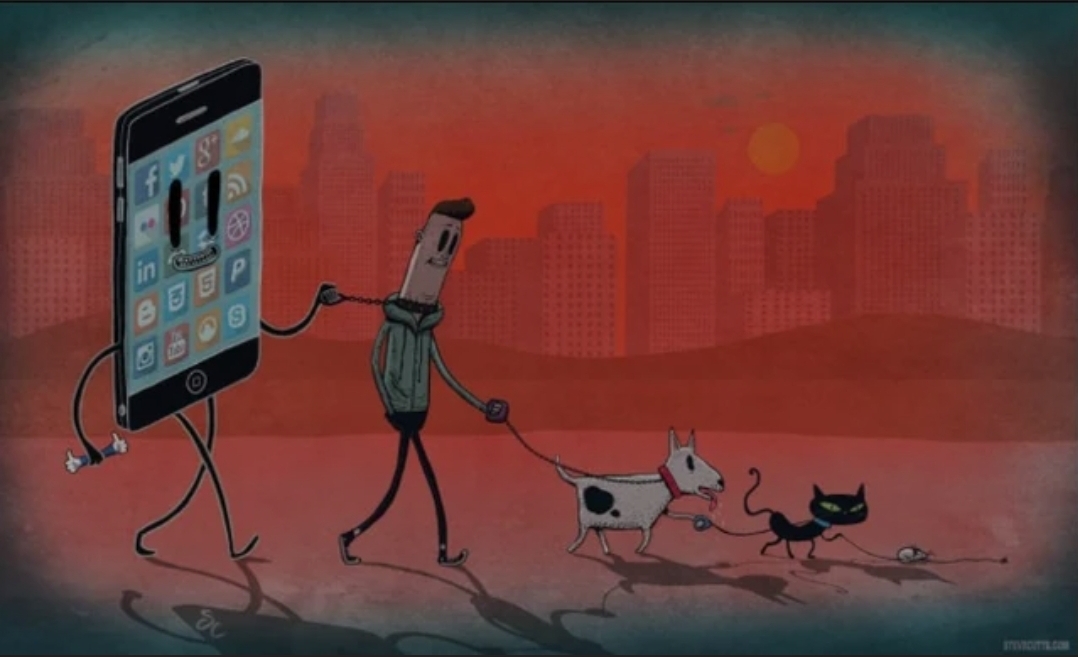
The result? Each micro-pleasure weakens our ability to find joy in reality.
- Real food tastes bland next to the hyper-engineered sweetness of soda or fast food that delivers dopamine explosions.
- Real conversation feels slow compared to the quick validation of likes and comments on social feeds.
- Real life feels dull beside the endlessly curated stimulation of screens.
Dopamine, once a survival ally, has become the perfect invisible chain. It doesn’t whip or punish. It seduces. It gives just enough pleasure to keep you coming back, yet not enough to ever satisfy. We live in cages we mistake for playgrounds, all because our deepest neurological wiring has been hacked.
From Brave New World to Scientific Oligarchy
When Aldous Huxley first published Brave New World in 1931, the idea that pleasure itself could become the tool of tyranny sounded far-fetched. The world was in the depths of the Great Depression. People weren’t drowning in comfort — they were starving, jobless, desperate. The threat of oppression looked like jackboots, police batons, and starvation, not amusement parks, entertainment devices, and pills.
But Huxley lived long enough to watch the world change. After World War II, he saw how mass propaganda, commercial advertising, and new technologies of communication could do what force never could: make people willingly surrender their freedom.
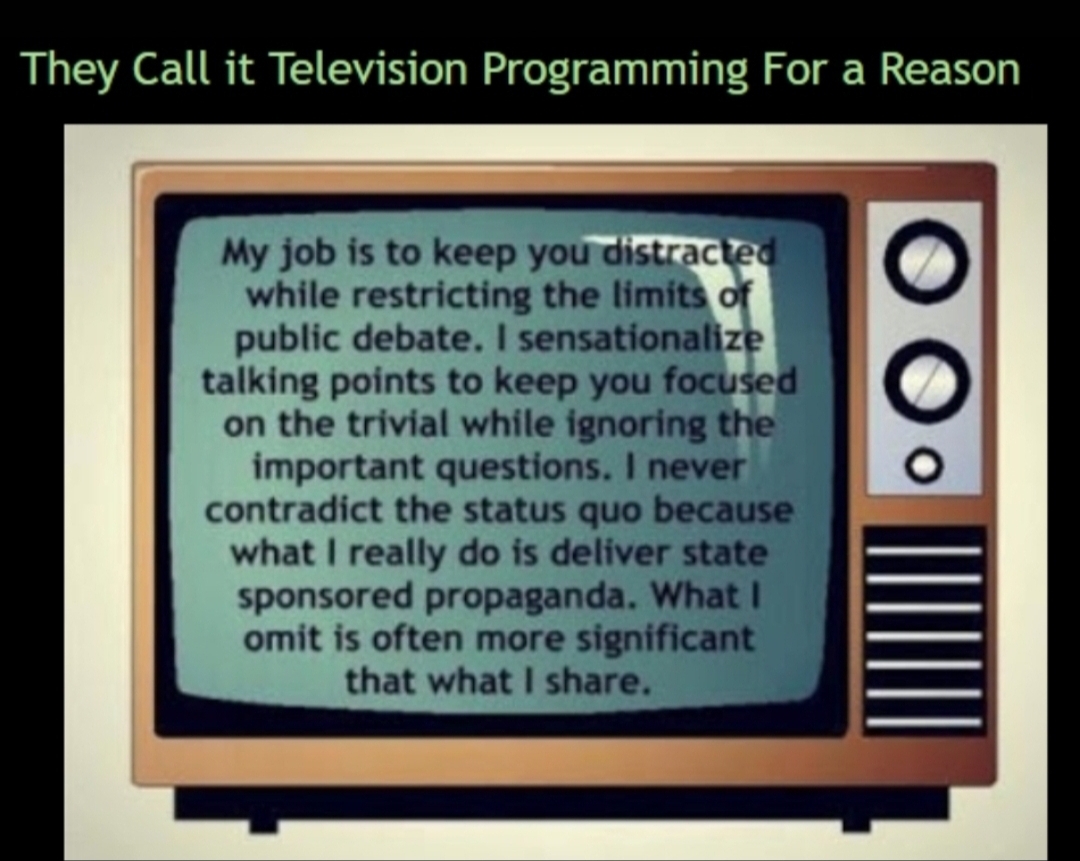
By the 1950s:
- Television became the new pulpit. Instead of being told to obey through speeches in town squares, people were entertained into conformity. Laugh tracks, commercials, and “ideal families” on screen became scripts for how to live. People didn’t even realize they were imitating what they saw.
- Madison Avenue perfected advertising psychology. Edward Bernays, nephew of Freud, pioneered public relations by using subconscious desires (sex, status, belonging) to sell everything from cigarettes (“torches of freedom” for women) to cars (“manhood on wheels”). Consumption became identity.
- Mass conformity replaced individuality. Huxley saw how the craving for comfort could be weaponized. Suburbs promised safety and sameness. Processed food promised convenience. Pharmaceutical pills promised happiness. Nobody was forced — people chose their own sedation.
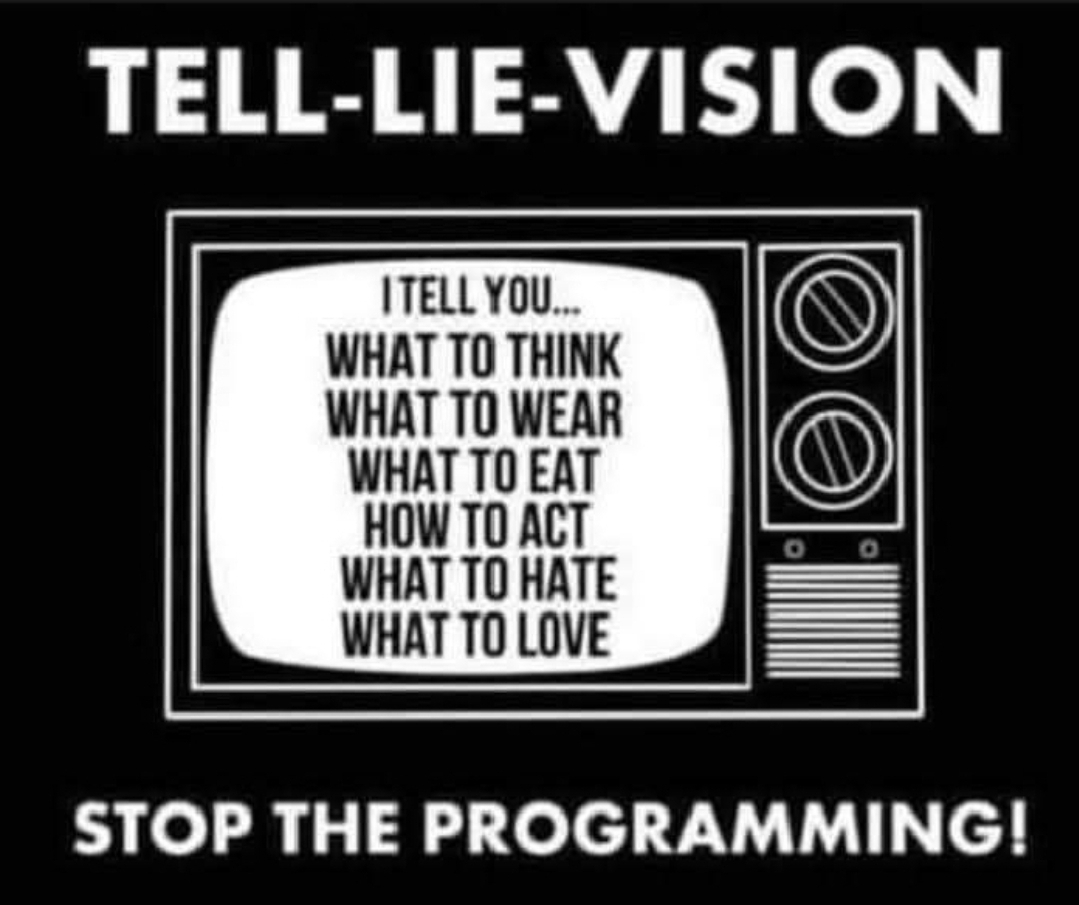
Huxley began warning about what he called a “scientific oligarchy.” This wouldn’t rule through gulags and firing squads like Stalin or Hitler. It would use something more powerful: scientifically calibrated pleasure.
And here’s the unsettling truth: Huxley was right. Today his warnings read less like science fiction and more like the evening news.
- Responsibility vs. distraction. Given the choice between reading a serious book and scrolling Instagram, most choose Instagram. Between cooking a meal and ordering fast food, most choose fast food. Between sitting in silence and binge-watching Netflix, most choose Netflix. Each “choice” feels harmless, but multiplied across a society, it becomes paralysis.
- The dopamine economy. Entire industries now depend on this weakness. Social media platforms, streaming services, gaming companies, food giants, and pharmaceutical firms thrive because humans prefer distraction over discipline. These aren’t accidents; they are engineered systems designed to exploit our natural vulnerability.
- The soft cage. Instead of soldiers forcing people to obey, algorithms guide behavior. Push notifications interrupt thought. Recommendation engines tell us what to watch, read, or buy. Ads convince us to consume things we never needed. Freedom hasn’t disappeared; it’s been redefined into endless choices that all lead back to the same cycle of distraction.
Huxley’s key insight was this: tyranny doesn’t always arrive with chains and guns. Sometimes it arrives with ice cream, TV remotes, and smartphones. He saw that when people are conditioned to choose distraction over responsibility, they will never resist — because they won’t even recognize they are being controlled.
This is the genius — and the horror — of the scientific oligarchy: it doesn’t need violence when it can manufacture desire.
The Infantilization of Society
Pleasure without limit breeds fragility. When every discomfort is avoided, people lose resilience. Like spoiled children in adult bodies, we expect satisfaction without effort, relief without sacrifice, and entertainment without boredom. And this infantilization is not accidental — it is profitable.
The System Rewards Immaturity
Entire industries thrive on keeping people impulsive, dependent, and easily entertained. A mature citizen questions power, delays gratification, and values responsibility. An infantilized consumer, by contrast, demands instant gratification, avoids responsibility, and reaches for distractions at the first sign of discomfort. Who is easier to govern? Who spends more money? The answer is obvious.
Skinner’s Rats and Today’s Screens
B.F. Skinner’s infamous experiments demonstrated that animals, when given a lever delivering unpredictable rewards, would press compulsively. The randomness — not the reward itself — created obsession.
Now compare this to modern life:
- Smartphones: Every swipe on TikTok, every scroll on Instagram, is a lever pull. Sometimes you see something funny, shocking, or beautiful; sometimes you don’t. The unpredictability hooks the brain more than guaranteed pleasure would.
- Social Media Likes: Posting a photo triggers anticipation. How many likes will I get? Who will comment? The uncertainty fuels compulsive checking.
- Video Games: Loot boxes, randomized rewards, and endless “side quests” replicate Skinner boxes for humans. You never know when the next upgrade will drop, so you keep playing.
- Shopping Apps: Flash sales, “only 3 left,” and algorithmic recommendations manipulate urgency and scarcity. It feels like hunting, but it’s programmed hunting — and the prey is your attention and money.
Even when people know they are being manipulated, the emotional conditioning often overrides rational awareness. A gambler can know the odds and still be hooked; so too can a TikTok user who understands the algorithm but keeps swiping anyway.
Decorating the Prison
Skinner himself envisioned a “scientifically managed utopia” (Walden Two) where conditioning would eliminate crime, conflict, and unhappiness. But the reality turned darker: conditioning did not build utopia; it built dependency.
Look around today:
- People defend their addictions to social media by calling them “connection” or “self-expression.”
- We decorate our digital cages with emojis, avatars, and curated feeds, convincing ourselves we are free while following algorithms.
- Citizens vote for leaders who promise more comfort, safety, and entertainment rather than leaders who call them to responsibility, discipline, and sacrifice.
- Even rebellion is commodified — “countercultural” fashion, slogans, or TikTok trends are sold back to us by the very corporations we claim to resist.
The tragic irony is that this invisible tyranny doesn’t need whips or chains. It operates through pleasure, through comfort, through infantilization. Instead of prisoners plotting escape, people are happily customizing their cells — with Netflix queues, streaming playlists, shopping lists, and endless distractions.
The Cost of Infantilization
When people are conditioned this way:
- They become fragile: unable to endure boredom, silence, or hardship.
- They become controllable: more interested in entertainment than in truth, more swayed by propaganda than by reason.
- They become profitable: ideal consumers who buy not out of need but out of craving.
And worst of all, they come to defend their own enslavement as freedom. “I can scroll whenever I want,” “I choose to binge,” “I deserve to treat myself.” The prison of impulse becomes invisible because it feels like choice.
Soma Reborn: Drugs of the Modern Age
In Brave New World, Aldous Huxley warned of Soma, the perfect drug: no hangovers, no side effects, just instant relief from pain or doubt. Citizens used it like a sacrament to erase discomfort and ensure compliance. Today, we may not call it Soma, but modern society has engineered countless substitutes that achieve the same goal — keep people docile, distracted, and “functional” within systems that drain their vitality.
Pharmaceutical Soma
- Antidepressants and Anti-Anxiety Medications: While these can be lifesaving for some, their over-prescription often masks deeper existential unrest. Instead of asking why people are depressed in a hyper-consumerist, isolating society, the system medicates them to keep them working, shopping, and paying bills.
- A worker burned out by a toxic corporate job is prescribed medication to endure conditions that should be questioned or changed.
- A teenager overwhelmed by social media comparison is treated chemically rather than being guided to rebuild self-esteem and meaning offline.
- Opioids: Entire communities were devastated by the opioid epidemic, which began with “treatment” prescriptions. Painkillers promised relief but created dependency. Corporations profited billions while families collapsed — a real-world example of Soma’s function: keep people sedated, not sovereign.
Digital Soma
- Pornography: Just as Soma severed sex from intimacy in Huxley’s vision, pornography has become a digital drug.
- It provides instant stimulation without the risks, effort, or vulnerability of real relationships.
- Brain studies show it rewires reward systems, creating tolerance and escalating cravings. What begins with curiosity escalates to compulsive consumption, making real intimacy feel dull by comparison.
- Industry profits mirror this dependency: pornography revenues eclipse the film and music industries combined, feeding on loneliness and desire while fragmenting real human bonds.
- Streaming and Gaming: “Binge culture” allows people to anesthetize existential emptiness. Netflix even jokes, “Are you still watching?” — a modern echo of Soma’s vacation from reality. Video games simulate conquest and achievement while keeping users inside algorithmic loops of artificial progress.
Lifestyle Soma
- Fast Food and Sugar: Like Soma pills, these provide quick pleasure and energy spikes, followed by crashes that fuel the cycle of dependence. They numb stress and sadness but deteriorate health, ensuring customers remain repeat buyers.
- Retail Therapy: Shopping creates temporary highs — the dopamine surge of a purchase — but leaves emptiness once the novelty fades. Like Soma, it soothes for a moment but never addresses the inner void.
The Cost of Soma Substitutes
Like Huxley’s drug, today’s substitutes don’t eliminate pain — they erase the signal that something is wrong. They allow people to tolerate toxic jobs, shallow relationships, societal alienation, or political corruption rather than confront them. In doing so:
- Growth is postponed, because growth only comes through discomfort.
- Reflection is avoided, because silence is unbearable.
- Resistance is neutralized, because docility is profitable.
The genius — and danger — of these modern Somas is that they don’t require authoritarian enforcement. People consume them voluntarily, convinced they are exercising freedom while unknowingly choosing sedation over awakening..
Entertainment as Hypnosis
Entertainment is no longer a simple diversion; it has become a form of industrial hypnosis, engineered to keep us passive, distracted, and docile. What once offered occasional leisure now functions as a mechanism of mass conditioning.
Pornography: Intimacy Without Intimacy
- The porn industry generates more annual revenue than Hollywood and the music industry combined.
- This is not just about profit — it’s about rewiring desire:
- Real intimacy requires vulnerability, patience, and sacrifice. Porn replaces that with instant, artificial stimulation, leaving real relationships unsatisfying.
- Young viewers report difficulty forming or maintaining romantic connections because their expectations have been warped by curated fantasy.
- It’s the perfect Soma: pleasure without risk, connection without responsibility, intimacy without love.
Streaming Platforms: Infinite Loops of Distraction
- Netflix openly boasted that its biggest competitor is sleep. Auto-play, cliffhangers, and personalized recommendations are all designed to keep you watching until your willpower breaks.
- People talk about “binge-watching” as though it’s freedom — but it’s engineered compulsion.
- When every free moment is filled with noise, the mind never has time to reflect, question, or confront emptiness.
TikTok and Short-Form Content: Stimulation Without Silence
- TikTok, Instagram Reels, and YouTube Shorts serve an infinite slot machine of attention-grabbing snippets.
- Each swipe is an unpredictable dopamine hit — just like a gambler pulling a lever.
- Users become unable to tolerate boredom; silence feels like suffocation. This makes them easier to control — a mind addicted to stimulation has no room left for contemplation.
Video Games: Casinos of Artificial Progress
- Modern video games use reward loops indistinguishable from casinos: loot boxes, randomized drops, streak bonuses, leveling systems.
- Instead of offering play as exploration, they engineer endless quests that mimic achievement while producing nothing real.
- Hours, days, even years are lost to worlds designed to simulate progress, keeping players hooked while corporations profit.
The Consequence: Depth Lost
- Silence, once the space where prayer, philosophy, and creativity flourished, is now intolerable.
- Reflection, once the soil of wisdom and maturity, has been crowded out by noise.
- Courage and spiritual growth, which demand facing discomfort, wither when the mind is kept in perpetual hypnosis.
Human beings are being trained, not to live, but to consume endlessly. What Huxley warned — people loving their own chains — has arrived in full. Entertainment is no longer about leisure; it is about keeping us too distracted to resist, too stimulated to grow, too hypnotized to be free.
Cognitive Collapse and the Loss of Depth
Overstimulation is not neutral — it is rewiring the brain. What once took years of discipline and cultivation to build — the ability to focus, to reflect, to wrestle with big questions — is being dismantled by constant novelty.
Inability to Sustain Attention
- Deep work — the capacity to sit with one task for hours — is now rare. Students can’t read a full chapter without checking their phones. Workers toggle between apps hundreds of times a day.
- A 2022 Microsoft study showed the average human attention span online had fallen to eight seconds, shorter than that of a goldfish.
- This isn’t natural decay; it’s design. Notifications, feeds, and apps fragment thought into soundbites, training us to skim rather than think.
Compulsive Novelty Seeking
- Dopamine loves novelty. Every “refresh,” “swipe,” or “scroll” is a small lottery ticket — maybe the next thing will be better.
- TikTok and Instagram Reels exploit this endlessly, creating brains addicted to perpetual newness.
- In this state, slow, steady practices (gardening, journaling, meditating) feel unbearable. Our minds crave the buzz of new stimulation like addicts crave a fix.
Loss of Deep Reading and Contemplation
- Whole genres — poetry, classical literature, dense philosophy — are becoming foreign territory because they require stillness and patience.
- Compare:
- Reading Tolstoy’s War and Peace over months.
- Versus doomscrolling 200 tweets in 15 minutes.
- The first builds depth, narrative memory, and empathy. The second fragments thought into scattered impressions.
- Teachers report students can no longer handle unbroken paragraphs. Readers skim even sacred texts like Scripture, treating them like social media quotes instead of lifelines of wisdom.
Growing Susceptibility to Propaganda
- Shallow attention makes us easier to manipulate. When people can’t sustain focus, they don’t examine arguments or evidence — they react to headlines, images, and emotions.
- This is why misinformation spreads faster than truth: it is bite-sized and emotional, while truth is slow and requires thought.
- Political strategists, advertisers, and propagandists understand this. Instead of convincing us, they overwhelm us until repetition feels like reality.
- Example: In the run-up to the Iraq War, lies about “weapons of mass destruction” spread in short, memorable soundbites. The slower, more careful reporting of Knight Ridder never broke through the noise.
The Result: Fragility of Mind
We are becoming people who can:
- Absorb memes but not arguments.
- React instantly but not reflect deeply.
- Feel outrage but not sustain conviction.
It’s like trying to listen to a symphony with ears trained only for three-second jingles. The richness of poetry, philosophy, and spiritual reflection fades when the brain is tuned only to stimulation. And in that fragility, manipulation thrives.
A distracted people are an obedient people. When the mind cannot go deep, it cannot go free. thrives.
The Crossroads of Civilization
We are not drifting aimlessly; we are standing at a civilizational fork in the road. Every swipe, every choice of pleasure over purpose, every surrender to distraction nudges us toward one path or the other.
Path of Comfort: Infantilized Pleasure
- Endless Gratification
- Netflix auto-play means we don’t even have to press a button for the next episode.
- Food delivery apps guarantee indulgence within minutes, removing even the effort of cooking.
- Dating apps reduce intimacy to swipes and dopamine pings.
- No Pain, No Growth
- Parents bubble-wrap children against disappointment, preventing them from learning resilience.
- Schools grade inflation protects self-esteem but robs grit.
- Modern workplaces coddle with perks while demanding no deep loyalty — shallow comfort instead of real purpose.
- Entertainment as Life
- People plan weekends around binge-watching, not building or creating.
- Sports fandom becomes surrogate meaning, with more passion poured into team victories than family legacies.
- Virtual reality and gaming worlds begin to substitute for reality itself — chasing “levels” instead of living.
- Humanity Reduced to Consumers
- We measure ourselves by purchases: the latest phone, the new car, the vacation pics.
- Our worth is outsourced to algorithms — likes, follows, shares.
- We become predictable data points in the machine: endlessly scrolling, endlessly consuming, endlessly distracted.
This road feels easy and pleasant. But it leads to a humanity that is comfortable, fragile, and controllable.
Path of Maturity: Authentic Humanity
- Embrace Discomfort & Responsibility
- Choosing exercise instead of the couch; cooking a meal instead of ordering takeout.
- Facing conflict in relationships instead of numbing with distractions.
- Raising children with boundaries and responsibilities, not just entertainment and gadgets.
- Rediscover Slow Pleasures
- Reading a classic novel slowly, allowing ideas to sink in.
- Long conversations without phones buzzing, where silence deepens connection.
- Gardening, hiking, or woodworking — tangible acts of creation that outlast digital ephemera.
- Acts of service: helping a neighbor, volunteering, giving without expecting recognition.
- Build Resilience Through Effort & Sacrifice
- Training for months to run a marathon — effort that builds grit and pride.
- Saving over years for financial independence instead of credit-driven instant gratification.
- Enduring the discomfort of fasting, prayer, or silence to cultivate spiritual strength.
This road feels difficult and narrow. But it leads to a humanity that is resilient, wise, and free — rooted in meaning rather than consumption.
The Great Choice
History teaches us a sobering truth: civilizations do not collapse from external enemies alone. They often rot from within — trading resilience for comfort, discipline for distraction, courage for entertainment.
Rome: Bread and Circuses
- Roman citizens once valued civic duty, military service, and discipline. But as wealth flowed from conquest, the people demanded spectacle instead of responsibility.
- Gladiatorial games and free grain pacified the masses while corruption hollowed the state.
- Citizens forgot how to govern themselves, entrusting everything to emperors who used distraction to tighten control.
- The empire, once feared for its strength, grew fragile — a giant kept docile with games and food.
Byzantium: Luxury Without Strength
- After Rome split, Byzantium (Constantinople) became the jewel of the East, drenched in wealth and pageantry.
- Emperors built palaces and chariot races filled the Hippodrome while bureaucracy swelled into decadence.
- The empire survived for centuries not by strength but by diplomacy, bribes, and intrigue — “buying” survival until enemies could no longer be paid off.
- Luxury masked weakness, and when true tests came, the empire crumbled.
Modern Empires: The Illusion of Strength
- The British Empire: At its height, “the empire on which the sun never set” — but its wealth was built on colonial exploitation, not inner resilience. When wars and independence movements stripped its possessions, the hollow center was revealed.
- The American Empire: After WWII, discipline and sacrifice had built strength. But by the late 20th and early 21st century, consumerism became the glue. Instead of civic virtue, we were offered shopping malls, sports entertainment, and 24/7 media spectacles. Like Rome, we distract ourselves into weakness.
Today’s Bread and Circuses
- Sports as Surrogate War: Billions spent on Super Bowls and World Cups while schools and infrastructure decay. Citizens pour passion into teams but ignore their own civic responsibilities.
- Entertainment Everywhere: Streaming, TikTok, and gaming fill every quiet moment. Silence, once the ground of reflection, is now unbearable.
- Digital Bread: Social media “likes,” endless scrolling, and dopamine hits keep populations pacified. Instead of emperors handing out bread, corporations feed us algorithmic crumbs to keep us docile.
- Debt as Circus: Easy credit cards, buy-now-pay-later schemes, and consumer debt pacify citizens with short-term pleasure while shackling them to long-term servitude.
The Fork in the Road
We now face the same question as Rome, Byzantium, and every empire before us:
- One path: Infantilized pleasure. A society obsessed with entertainment, comfort, and distraction. Citizens become consumers, and nations become fragile shells — enslaved by debt, addicted to dopamine, easily manipulated by fear.
- The other path: Authentic maturity. A society that embraces responsibility, sacrifice, and discomfort as the soil of growth. Citizens who can think, endure, and build something lasting.
Entertained Into Extinction vs. Tested Into Greatness
- To be entertained into extinction looks like: generations glued to screens while freedoms erode, economies hollow, and culture fragments — the “last man” Nietzsche warned about, content in mediocrity until collapse comes.
- To be tested into greatness looks like: rebuilding civic courage, rediscovering slow wisdom, choosing discipline over dopamine, and learning again that growth always requires discomfort.
The question is no longer hypothetical. Do we want to live as citizens or as spectators? As creators of history or consumers of distraction?
Civilizations always answer this question, one way or another. And their destiny depends on it.
Nietzsche and Kierkegaard Revisited
Kierkegaard: The Trap of Infinite Desire in Finite Things
- Kierkegaard saw human beings as a paradox — finite bodies with infinite longings. When we try to fill that infinite hunger with finite substitutes (money, success, possessions, relationships), despair is inevitable.
- Examples today:
- The millionaire who still feels poor because billionaires exist.
- The influencer with millions of followers who still feels invisible when the likes slow down.
- The couple who breaks under the pressure of expecting the relationship to “fix” all emptiness.
- The consumer who buys a new phone, new car, new trip — and yet always feels the itch for the next thing.
- For Kierkegaard, the problem isn’t desire itself, but misdirected desire. We are designed to long for the infinite — for God, truth, transcendence — but when we pour that longing into temporary things, we end up with despair dressed up as success.
Nietzsche: The Last Man and the Death of Greatness
- Nietzsche warned what happens when pleasure becomes the highest goal: humanity produces the “last man” — comfortable, predictable, risk-averse, and utterly mediocre.
- Examples today:
- A culture obsessed with safetyism — where challenge, risk, and effort are avoided at all costs.
- Generations raised to seek comfort first: participation trophies instead of resilience, instant results instead of discipline.
- People anesthetizing themselves with video games, fast food, pornography, and social media — living on autopilot, “content” but never truly alive.
- Citizens preferring distraction over civic courage, allowing freedoms to vanish so long as the Wi-Fi keeps working.
- Nietzsche’s “last man” is terrifying not because he is evil, but because he is harmless — too weak to destroy but also too weak to create. The species slowly decays, not in fire and battle, but in sedation and banality.
Huxley: Pleasure as Tyranny
- In Brave New World, Aldous Huxley imagined a system where people were enslaved not by chains but by pleasures so abundant they stopped resisting.
- Examples today:
- Soma rebranded: antidepressants, opioids, and endless entertainment make us tolerate systems that are toxic to our spirit.
- Entertainment addiction: Binge-watching and scrolling are not seen as slavery, but as leisure — even as attention spans collapse.
- Data for dopamine: People willingly hand over their privacy for personalized ads, likes, and curated feeds, mistaking manipulation for convenience.
- Voluntary chains: Citizens defend the very systems that weaken them, believing comfort is freedom.
- Huxley’s point was chilling: people will beg for the very things that enslave them if they’re wrapped in pleasure.
The Convergence: Pleasure Is Never Enough
- Kierkegaard shows why pleasure cannot fill the infinite hole.
- Nietzsche shows what happens when pleasure is elevated into the highest value: the death of greatness, the rise of the last man.
- Huxley shows how pleasure becomes a weapon of control, making entire societies complicit in their own enslavement.
Examples in practice today:
- Consumer capitalism: We are kept on the treadmill of buying, upgrading, and wanting — never satisfied, always hungry.
- Digital dopamine: TikTok, Instagram, and Netflix keep us scrolling endlessly, too distracted to ask “why.”
- Politics as circus: Citizens cheer for bread-and-circuses spectacles, while institutions erode unnoticed.
- Work culture: Success metrics are redefined as material consumption or follower counts — fleeting rewards that never touch the soul.
The Way Out: Growth, Self-Overcoming, Transcendence
If pleasure is never enough, what is? The answer is not to reject pleasure but to put it in its rightful place — as seasoning, not the main dish. Pleasure should flow naturally from a life of meaning, not be the goal itself. To reclaim our humanity, we must redirect desire toward growth, self-overcoming, creativity, love, truth, and transcendence.
Kierkegaard: Faith and Transcendent Alignment
- Kierkegaard argued that only by orienting our desires toward the infinite — God, truth, eternal meaning — can we escape despair.
- Examples:
- A person chasing endless promotions finds peace when they realize that service to others, not titles, gives their work significance.
- Someone who feels restless in consumerism redirects energy into prayer, philosophy, or art, aligning finite life with eternal purpose.
- The “disease of time” — living always in the future — is healed when we learn to ground ourselves in the present moment as a sacred gift.
Nietzsche: Self-Overcoming and the Embrace of Challenge
- Nietzsche’s Will to Power is not about dominating others but about overcoming oneself — becoming stronger, braver, and more creative each day.
- Examples:
- Instead of numbing failure with distractions, an entrepreneur learns from mistakes and builds something more resilient.
- An artist facing rejection refuses to quit, turning personal pain into masterpieces that touch others.
- A person used to comfort begins running or lifting weights — not for vanity, but to master their own resistance and prove they can grow.
- For Nietzsche, greatness comes not from avoiding struggle but from embracing it as the crucible of transformation.
Both Thinkers: Suffering as Soil of Meaning
- Both Kierkegaard and Nietzsche insist that true growth arises not in pleasure but in struggle. Suffering, when embraced, becomes a teacher.
- Examples:
- Relationships deepen when couples face hardship together — illness, financial strain, betrayal — and emerge stronger.
- A student who fails an exam but pushes forward learns resilience that lasts longer than any “easy A.”
- Civilizations that endure hardship often produce their greatest art, literature, and innovation — just as Renaissance beauty followed medieval plague, or American literature flourished during civil unrest.
Redirected Desire in Practice
- Desire isn’t eliminated — it’s elevated.
- Instead of craving endless validation on social media, we desire to create something of lasting worth — a book, a business, a legacy.
- Instead of escaping into Netflix binges, we desire to master a skill, write music, or build community.
- Instead of demanding that life be easy, we desire to be strong enough to handle life’s difficulty.
Core Example Summary:
Both → suffering is not a curse but the raw material for meaning.
Kierkegaard → align with God, eternity, truth (faith and transcendence).
Nietzsche → embrace difficulty, create values, overcome yourself (self-mastery).
True Freedom: Choosing What Hurts and Heals
True freedom is not simply the absence of chains. It is not “doing whatever you feel like” in the moment — because impulses, when left unchecked, enslave just as tightly as any tyrant. Real liberty is the power to choose meaning over impulse, to willingly embrace the discomfort that heals and strengthens rather than the distraction that numbs.
And this freedom begins not in grand revolutions but in small, hidden choices that most of the world will never applaud.
Refusing Junk Food and Cooking Real Meals
- The easy choice: grab fast food or pre-packaged meals, engineered to trigger cravings but leaving the body sluggish and sick.
- The free choice: cooking a meal from scratch. It takes effort, patience, and discipline, but the reward is vitality, health, and pride in self-care.
- Example: Instead of stopping at the drive-thru after a long day, someone chooses to prepare a simple meal at home. That one act is freedom — saying no to convenience addiction, yes to long-term strength.
Turning Off Screens to Reclaim Silence
- The easy choice: endless scrolling, autoplay, background noise to drown out thought.
- The free choice: deliberately switching off the phone, TV, and computer to sit in silence — even if it feels awkward at first.
- Example: Choosing to leave your phone in another room while you eat dinner with family. At first, there’s restlessness, but soon there’s conversation, laughter, and presence. That’s real freedom — reclaiming attention from algorithms.
Training the Body with Discipline
- The easy choice: remaining sedentary, numbing stress with entertainment, postponing health until it collapses.
- The free choice: showing up for exercise even when you don’t feel like it. Discipline transforms pain into power.
- Example: A morning run in the cold. Every cell says “stay in bed,” but the act of running not only strengthens the body — it strengthens the will. That voluntary discomfort is freedom in action.
Saying “No” to Distractions So You Can Say “Yes” to Growth
- The easy choice: saying “yes” to every impulse — another scroll, another drink, another hour of TV.
- The free choice: saying “no” to what weakens so you can say “yes” to what builds. Every no is also a yes to something higher.
- Example: Saying “no” to a weekend of binge-watching so you can say “yes” to writing the book you’ve dreamed of. Saying “no” to shallow socializing so you can say “yes” to mentoring your child.
The Paradox of Freedom
Real freedom looks like work. It looks like discipline, sacrifice, even suffering. But these invisible acts — uncelebrated, inconvenient, often painful — are the bricks of true liberty.
A man who can master his diet, his attention, his body, and his time is freer than the billionaire enslaved to impulses, appetites, and endless distractions.
Core Truth:
Discipline feels hard but liberates.
Impulse feels free but enslaves.
Conclusion: A Civilization at Stake
Frederick Douglass once said, “When a slave becomes a happy slave, he renounces everything that makes him human.” Today, our chains are not iron but impulses, not whips but dopamine, not dictators but algorithms. And yet the effect is the same: humanity reduced to distracted consumers decorating their cages.
Look around:
- Food: Fast food chains and ultra-processed snacks promise instant comfort but leave millions obese, diabetic, and exhausted — slaves to cravings instead of masters of appetite.
- Technology: Social media apps offer connection but breed loneliness, envy, and addiction. The average person checks their phone over 100 times a day, not from choice but compulsion.
- Entertainment: Streaming platforms and games are engineered to eliminate silence, but in doing so, they eliminate reflection — a society binge-watches its way out of self-awareness.
- Work: Many pursue careers not out of calling but out of comparison — climbing corporate ladders to buy things they don’t need, for approval that never satisfies.
- Politics: Citizens cheer for “bread and circuses” — cheap stimulus checks, endless spectacles, partisan outrage — while liberty erodes and surveillance expands.
We can keep running from pain, chasing pleasure, and applauding our slavery — just as Rome did with bread and circuses until the empire rotted from within.
Or we can embrace the more difficult path:
- Choosing health over comfort food.
- Choosing silence and reflection over endless scrolling.
- Choosing hard conversations and deep relationships over shallow validation.
- Choosing sacrifice and responsibility over passivity.
- Choosing to suffer for what matters rather than suffer from the emptiness of distraction.
The final question is not abstract — it is existential, and it is personal:
- Will we remain tourists in our own lives, living on highlights and distractions curated by others?
- Or will we step forward as creators of meaning, embracing discomfort, practicing discipline, and reclaiming the freedom that makes us fully human?
Core Takeaway
Pleasure fades. Meaning accumulates.
Choose meaning, and life becomes not just worth living — but worth reliving again and again, without regret. forever.
Point-by-Point Breakdown of Transcript
1. Opening Framing: The Distraction Trap
- Quote: “The men will forget how to think and will begin to seek distractions, not meaning.” – Aldous Huxley.
- Opening question: Do you control your life, or are you too distracted to realize you’ve already been controlled?
- Central thesis: Pleasure and distraction function as invisible chains.
- Every pleasure taken without awareness kills something inside us.
- The system exploits our desires to dominate us.
2. False Freedom
- Goethe’s quote: “None are more hopelessly enslaved than those who falsely believe they are free.”
- Modern abundance and supposed freedom = a mask.
- Real condition: an invisible prison disguised as liberty.
- Distinction:
- False freedom = doing whatever we feel in the moment (following impulses).
- Real freedom = resisting destructive impulses and consciously choosing what matters.
3. Programmed Behaviors
- Examples:
- Urge to check notifications during conversations.
- TV that turns on automatically at home.
- These are conditioned reflexes, not conscious choices.
- Result: a “golden prison” — comfortable, desirable, celebrated.
4. Huxley vs. Orwell
- Orwell → control through fear, force, surveillance, punishment.
- Huxley → control through pleasure, distraction, voluntary enslavement.
- Reality: Huxley’s prophecy came true.
- Nobody forces us to give away personal data — we do it for “personalization.”
- Nobody forces us to binge screens — we choose it because it feels like freedom.
- The system’s genius = making people love their chains.
5. The Brain Hijacked: Dopamine
- Dopamine originally evolved as a survival mechanism:
- Rewarded finding food.
- Rewarded genuine social bonds.
- Now hijacked by:
- 15-second videos.
- Endless scrolling.
- Notifications.
- Result: conditioning → weaker satisfaction in real life, stronger pull toward artificial rewards.
- Dopamine becomes the new invisible shackle.
6. Huxley’s Evolving Realization
- 1931: Brave New World published during Great Depression — excess pleasure as a problem seemed absurd at the time.
- Post-WWII: Huxley realized his prophecy was unfolding faster than expected:
- Rise of commercial television.
- Psychological advertising.
- Computers and mass propaganda.
- He began warning of a scientific oligarchy — an elite using neuroscience + psychology for invisible control.
- They wouldn’t need violence → they’d use scientifically calibrated pleasure to govern behavior.
7. Our Vulnerability to Distraction
- Human brain seeks pleasure, avoids discomfort.
- When faced with a choice between responsibility and distraction, we usually choose distraction.
- This became our greatest vulnerability in the age of abundance.
8. The Paradox of Immediate Gratification
- The more instant pleasure we have → the less real satisfaction we experience.
- Over-pleasure creates fragility.
- Analogy: “psychological allergy” to frustration and discomfort.
- The very experiences that build character (pain, delay, struggle) are being erased.
9. Infantilization of Society
- Result of constant pleasure = adults acting like spoiled children.
- Expectation: life should always be easy, comfortable, entertaining.
- This isn’t accidental → systems profit from keeping people dependent and impulsive.
10. Skinner and Behavioral Conditioning
- B.F. Skinner discovered intermittent reinforcement:
- Rats pressing levers compulsively because rewards were unpredictable.
- Same mechanism controls us:
- Tapping for likes.
- Scrolling for notifications.
- Even awareness doesn’t break conditioning — emotional programming trumps rational knowledge.
- Skinner’s utopia (Walden Two) → a society run on conditioning.
- Horror: not utopia but tyranny disguised as harmony.
- People would decorate their own prison cells, defending them as freedom.
11. Modern Implementation of Skinner’s Vision
- Tech companies employ neuroscientists + psychologists.
- Goal: maximum profit through captured attention.
- Strategies: exploit vulnerabilities → build dependencies → monetize addiction.
- Freedom reduced to the illusion of choice — actors on stage following an invisible script.
12. Huxley’s “Soma” → Modern Equivalents
- In Brave New World: Soma = a euphoric drug that eliminated discomfort, increased suggestibility, and kept society docile.
- Today’s parallels:
- Antidepressants → treat symptoms of artificial life without addressing causes.
- Anti-anxiety meds → suppress existential unrest.
- Opioids → dependency disguised as treatment.
- These act as chemical “somas” that keep people functioning inside toxic systems rather than questioning them.
13. The Erosion of Love and Intimacy
- Huxley’s motto: “Everyone belongs to everyone.”
- Purpose: weaken emotional bonds that might compete with state loyalty.
- Today’s parallel:
- Pornography industry (bigger than movies + music + games combined).
- Creates dependency, alters brain structure, weakens intimacy.
- Users need increasingly extreme stimuli; lose satisfaction in real relationships.
- Porn = fast food for intimacy → addictive, hollow, and profitable.
- End result: relational fragmentation = easier to control society.
14. Endless Entertainment = Hypnotic Control
- Netflix → optimized for compulsive binge-watching.
- TikTok → personalized stimulation loops.
- Video games → reward systems rivaling casinos.
- Collective result: mental anesthesia.
- Silence and boredom become intolerable → reflection avoided.
- Effect: systematic destruction of self-awareness and spirituality.
15. The Allergy to Pain
- Culture provides an escape for every discomfort:
- Alcohol for stress.
- Weed for relaxation.
- Shopping for therapy.
- Fast food for comfort.
- Social media for validation.
- This escape culture reduces psychological resilience → inability to handle life’s challenges (loss, failure, uncertainty).
- Growth requires discomfort, but society now flees it.
16. Cognitive Collapse from Over-Stimulation
- Constant digital bombardment reshapes brain architecture.
- Effects:
- Acquired ADHD.
- Compulsive novelty seeking.
- Loss of deep reading + sustained thought.
- Weakened circuits for concentration.
- Culture loses ability to enjoy poetry, philosophy, classical music, complex art → things requiring focus.
- Fragmented minds = easier to manipulate with emotional propaganda.
17. Civilization’s Crossroads
- Two paths:
- Path of comfort → endless gratification, no pain, but also no meaning, no growth, and eventual loss of humanity.
- Path of maturity → discomfort, responsibility, delayed gratification, but real growth, freedom, and humanity preserved.
18. Digital Technologies as Tools of Enslavement
- AI + Big Data → analyze behavior better than we understand ourselves.
- Algorithms manipulate exposure to ideas, shaping opinions without consent.
- Illusion of individuality = predictable reactions to stimuli.
- Tools (social media, shopping, streaming, dating apps) engineered with gambling psychology.
19. True Freedom = Conscious Agency
- Freedom isn’t absence of constraint — it’s discipline + awareness.
- Real strategies:
- Digital detox.
- Embracing boredom, silence, and discomfort.
- Rediscovering “slow pleasures”: reading, conversation, art, service, skill-building.
- Training desires toward higher goods (nutrition, exercise, savings, spiritual growth).
20. Frederick Douglass’s Warning
- Quote: “When a slave becomes a happy slave, he renounces everything that makes him human.”
- True tragedy = loss of dignity, not physical pain.
- Modern parallel: populations embracing digital, chemical, and cultural chains — calling it freedom.
21. Final Call
- Today’s slavery = psychological chains, voluntarily accepted.
- Central question: Will we endure discomfort for true freedom, or settle for comfortable illusions?
- The answer will decide not just individual lives, but the destiny of civilization.
✅ That’s the full skeleton of the transcript — point by point. Nothing skipped.
This gives us an incredible structure to build: we can expand into a long-form article, visual infographic series, or a teaching module inside your tapestry system.

